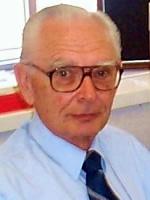Other Results of Using RO Concepts
Speaker A The work began with Elliot in 1985 in Alexandria, and it actually took us about ten years to collect the data, transcribe it, and get all the reports written. And so that was about the time ...
Transcript of the presentation video
NOTE: This transcript of the video was created by AI to enable Google's crawlers to search the video content. It may be expected to be only 96% accurate.
Speaker A The work began with Elliot in 1985 in Alexandria, and it actually took us about ten years to collect the data, transcribe it, and get all the reports written. And so that was about the time span. What happened then is that I went to the Industrial College of the Armed Forces, and there I think I had some influence on the development of the curriculum in the leadership department. We did incorporate a great number of Elliott's ideas into that curriculum. It sort of told us what thinking skills we needed to try to focus on developing. We used the phrases out of the CPA as a part of a developmental assessment battery, and then we insisted on doing roughly a two hour one on one with students for developmental purposes, where we sort of focused on two things. One is broad area that now would be called emotional intelligence, and the other is a broad area that we would now call originality or innovativeness or creativity. What we eventually came out with was an assessment battery, which on factor analysis later turned out to represent the Big Five. So we had a battery that looked broadly across personality, and we were doing developmental counseling. So basically what we did our developmental counseling on was the interaction management side of emotional intelligence and the conceptual cognitive skills mental mapping side of what's called intellectance in the Big Five. So that assessment battery is still in use. The leadership curriculum at ICAF still reflects Elliot's notions. I guess I should point out that the Army War College was also key in this early development. The Army War College served as a sponsor for the work with journal officers. The desper paved the way by writing letters to let us get access to these journal officers, but the Army War College was the sponsor for that work and in essence, also incorporated a lot of our findings into the leadership curriculum there. I think probably more so at ICAF than at the Army War College because I was at ICAF, and I guess I had a continuing influence on the thinking there. But that's sort of the early history.
Major organizations and consulting firms that provide Requisite Organization-based services





